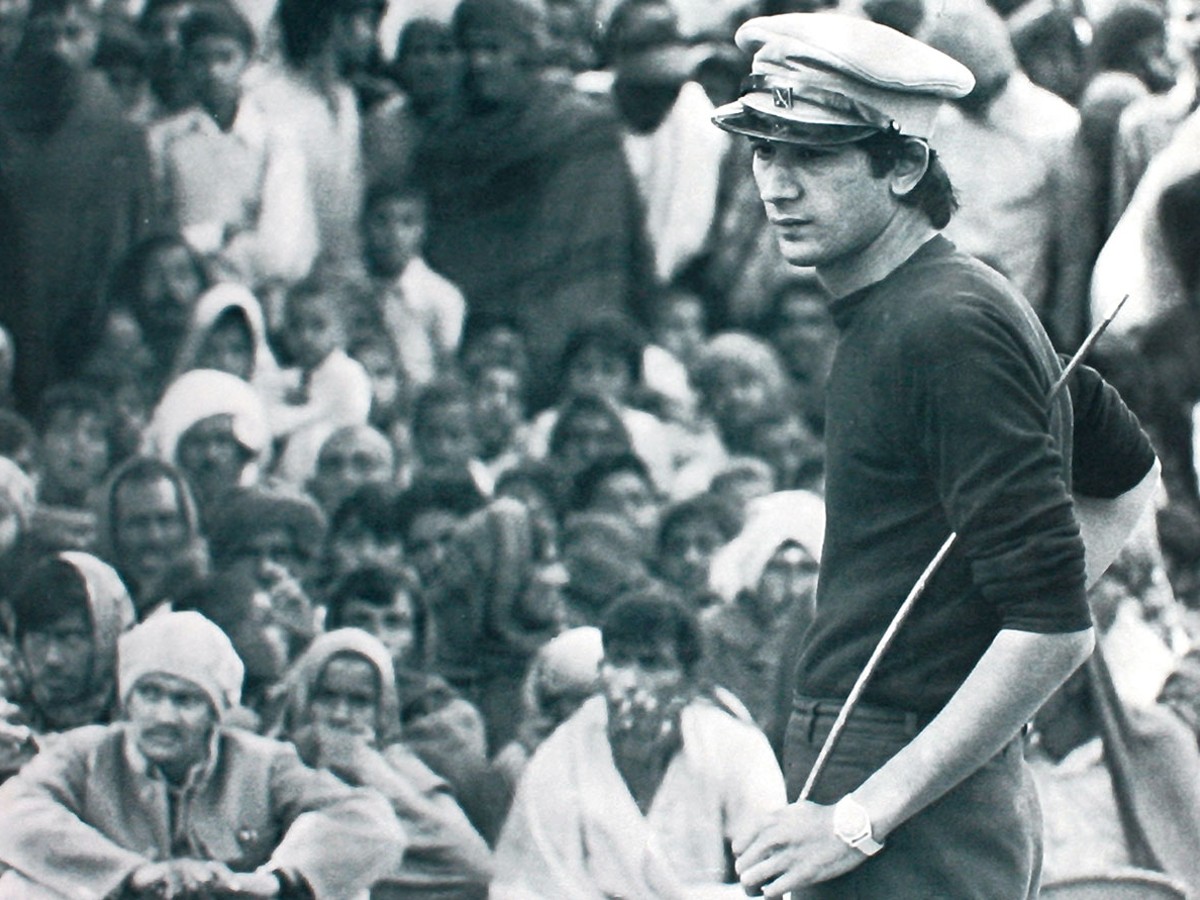
An archival image of Safdar Hashmi. (Photo: Sahmat)
Beyond street treatre and activism, there was a food lover in Safdar Hashmi – a firebrand Communist playwright who committed his life to art and the cause of the people.
Born on April 12 in 1954, Hashmi was fatally injured when he and his troupe were performing the streetplay Halla Bol (Raise Your Voice!), during the Ghaziabad municipal elections in Sahibabad’s Jhandapur village (near Delhi) on January 1 in 1989. He succumbed to his injuries a day later.
Recalling his brother on his birth anniversary, Shabnam fondly remembered the litte-known elements of Hashmi’s life. “He was full of life and always present in the moment. He was the family’s entertainer and his wit always cracked each one of us. He was big foodie. Food was an important component of his life. In fact, the night before he went to Jhandapur to perform, he had gone to Chandni Chowk to buy Laal roti (Bakarkhani) for his friends for dinner. He was always looking for something good to eat,” said Shabnam, his younger sister.
“Safdar was never aloof from people he didn’t associate politically. He believed in mingling with all and he was loved by all. Despite that, yes, he was killed. But that can not take away what he shared with the people. Unlike what it is today, he was a man who touched the lives of everyone cutting across political affiliations. But, above all, he believed in people and the power of communication. Had he been alive today, he would have been equally proactive in hitting the streets and would not have shied away from switching his medium of communication, which today mainly is social media,” she said.
Talking about his legacy, Shabnam spoke of how fondly the youth still remembers the icon. “Even now, when I am attending events and talking to the young people, I am always asked about Safdar and people pay their respects to him. He has such a rich legacy that people remember his art and hardly ever speak of his political beliefs. That’s how his work made a mark on people,” she added.
Two days after he was murdered, his wife Moloyshree Hashmi went to the same spot again with the JANAM troupe, and defiantly completed the play.
Fourteen years after the incident, a Ghaziabad court convicted ten people, including Congress Party member Mukesh Sharma, for the murder.
Safdar Hashmi is still considered an important voice in Indian political theatre. He was an activist of the Students’ Federation of India (SFI).
He was a founding member of Jana Natya Manch (People’s Theatre Front; JANAM for short) in 1973, which grew out of the Indian People’s Theatre Association (IPTA).
When Indian Prime Minister Indira Gandhi was accused of rigging the elections, he produced a street play, Kursi, Kursi, Kursi (Chair, Chair, Chair), as a reaction to the controversy. The play narrated the story of a king whose throne moves with him when he attempts to give it up in favour of an elected representative. It was performed every day for a week, at the Boat Club Lawns in New Delhi, then a hub of political activity. It proved to be a turning point for JANAM.
A physiotherapist in Rohini was allegedly attacked by her brother-in-law, disguised as a woman, before…
The eighth edition of Master Strokes, curated by Kishore Labar, brings together thirty-six artists at…
National Zoological Park to introduce single-day animal adoption from March, allowing visitors to mark special…
The Delhi High Court suspended actor Rajpal Yadav’s sentence till March 18 after he deposited…
Artist Shikha Sheoran’s exhibition Zikr presents contemplative pencil and charcoal portraits exploring stillness, vulnerability and…
Delhi government has sought details from PWD on vigilance and CBI cases related to Arvind…